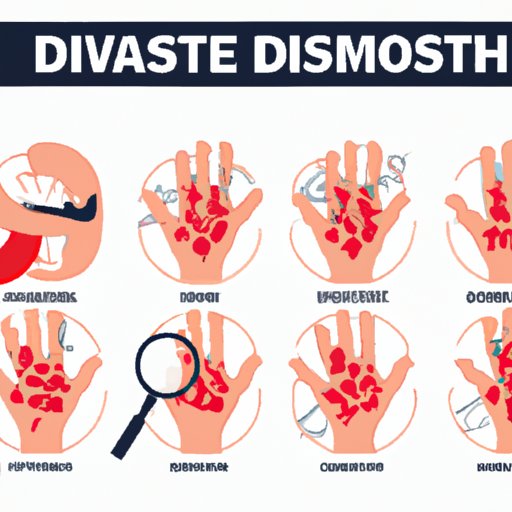
Introduction
Hand Foot and Mouth Disease (HFMD) is a widespread viral illness that is common among young children but can also affect adults. The disease is caused by coxsackievirus, a member of the enterovirus family, and presents with symptoms such as fever, mouth sores, and a rash on the hands, feet, and mouth. In this article, we will answer the question, how soon can you get Hand Foot and Mouth again? We will also provide information on how to prevent the disease from spreading and share treatment options for those infected with the virus.
Understanding Hand Foot and Mouth Disease
HFMD is highly contagious and spreads from one person to another through contact with the infected person’s bodily fluids. The virus can survive on surfaces, such as toys and doorknobs, for several hours, making it easy for others to contract the disease. In most cases, the symptoms of HFMD are mild and resolve within a week. However, in some cases, severe complications can occur, such as viral meningitis or encephalitis.
How Soon Can You Get HFMD Again?
A common question people have is whether they can get HFMD again. The short answer is yes. A person can get infected with the virus again, as the immunity gained from a prior infection is typically short-term. However, it is more common for adults to have immunity to the virus, as they are more likely to have previously been exposed to the disease.
Several factors increase the likelihood of contracting HFMD multiple times, such as age, immune system status, and exposure to certain environments. Young children are more likely to develop multiple infections since they have not developed immunity to the virus yet. Adults who work with children, such as caregivers and teachers, are at a higher risk of getting HFMD since they are constantly exposed to the virus from infected children.
Preventing the Spread of HFMD
The best way to prevent HFMD from spreading is to practice good hygiene habits. This includes washing hands regularly, especially after coming in contact with bodily fluids, avoiding close contact with infected individuals, and disinfecting surfaces that may have become contaminated with the virus. If an individual is infected, it’s best to stay home to prevent spreading the virus to others. It’s also essential to avoid sharing utensils, cups or other items that can spread the virus.
Treatments and Remedies for HFMD
Currently, no specific antiviral medication is available for treating HFMD. The treatment focuses on relieving symptoms and preventing secondary infections. Over-the-counter pain relievers and fever reducers can be taken to alleviate discomfort. Topical creams can also be used to relieve mouth sores. For those with severe symptoms, prescription creams and antiviral medication can help reduce symptoms and prevent complications. It’s important to note that medical treatment won’t necessarily reduce the likelihood of future infections, but it can help one feel better when infected.
Home remedies are also available to help alleviate symptoms of HFMD. Using products like honey to soothe a sore throat, gargling with salt water, and taking over-the-counter topical medication can bring relief. It’s also important to stay hydrated, as fluids can help ease symptoms and reduce fever. Natural remedies like drinking Turmeric Milk or having a decoction of black cumin seeds have also shown to help control symptoms in some individuals.
Personal Experiences and Stories
According to a report by the Centers for Disease Control and Prevention (CDC), the number of HFMD cases has been on the rise in recent years. Many individuals with HFMD have contracted the disease multiple times. While it can be frustrating to experience recurring episodes, it’s essential to be mindful of how to manage the disease.
Some individuals reported that their symptoms were less severe the second time they contracted the virus. Still, it’s important to remember that having a previous infection does not mean that future infections will be less severe. Practicing good hygiene habits, like washing hands frequently, and avoiding contact with those who might have the virus can help in preventing recurrent episodes of HFMD. Vaccines are available in some countries that help prevent against the most common strains of the virus, which can aid in reducing the likelihood of future infections.
Conclusion
Understanding how soon one can get infected with Hand Foot and Mouth Disease, and taking the necessary precautions to prevent it from spreading is crucial in curbing the spread of the disease. While it is possible to contract HFMD multiple times, practicing good hygiene habits, taking preventative measures, and seeking medical care when necessary can help reduce symptoms and prevent complications. With proper measures taken, patients infected with HFMD can manage the disease, prevent reoccurring episodes, and recover more quickly from their symptoms.
If one experiences symptoms indicated above, it’s essential to seek medical attention for the necessary care as an early diagnosis can help reduce the severity of the symptoms. Sharing knowledge about HFMD can raise awareness and help prevent its spread. Spread the word to help protect yourself, your loved ones, and your community.





